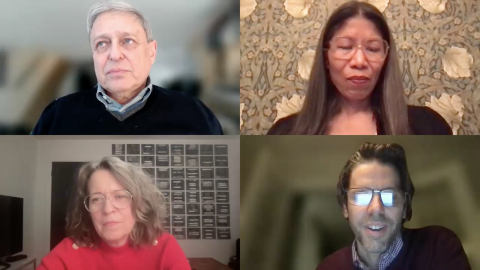Does Bailing Out Media Equal Controlling the Press?
You will likely have seen quite a few opinion pieces lately about what’s being called variously the “Canadian” media bailout, the “government” media bailout and the “Liberal” media bailout.
So, yes, there’s a media bailout afoot.
What is it, exactly? Well, that’s as yet undefined. We do know it has a price-tag of about $600 million, which is not chump change (although, neither is it a realistic reflection of just how badly the good ship Canadian Media needs bailing). Essentially, the government has noted the drastic decline in daily, local, investigative journalism, and seems to agree with a popularly held opinion that these things are really rather encouraging to a properly functioning democracy.
Without too much judgement about how journalism finds itself in its current mess, the Department of Canadian Heritage has announced an aid package designed to help this seriously threatened sector get itself back on its feet and convince its customers to start paying for its product again.
What I find most interesting about this planned package of tax incentives and subsidies is that the folks most critical of it, most concerned about its potential to ruin society as we know it, are card-carrying members of the same Canadian media currently checking the gutters for loose change. I certainly respect any media outlet that declares it has no intention of ever applying for subsidy. I’m just having a hard time following a lot of the criticism to its intended conclusion, which seems to be that any such financial aid to media is tantamount to buying the favour of journalists. That it will inevitably spell the end of a free press. That we’re on a one-way trip to state-controlled media.
For instance, a subhead from the National Post declares “if the heritage minister had explicitly set out to bolster the notion that Canadian media are bought and paid for by the Liberals, he could have done no better.” So, because the Liberals happen to be in charge when the media needs to have the paddles applied, that gives them ownership over the revived patient? I don’t see it.
Could state control happen? Certainly. It’s happened before in historical dictatorships, and it’s happening right now in some of the world’s less open societies. I note, though, that state control of media these days looks a whole lot less like tax credits for subscription purchases, and a whole lot more like terrifying physical intimidation. I can’t help wondering if the average Russian or Mexican journalist is worried more about a potential subsidy from the government than they are about a knock on the door in the middle of the night.
Critics are absolutely right to be concerned about the design of the subsidy package, and about the mechanisms for release of the funds. How funding is directed for a sector in need should always be closely examined and criticized. But neutral, arm’s-length, non-controlling funding can and does work. It involves trust in whatever eventual process is landed upon, and it may not be a hundred percent flawless, but we’ve seen it succeed in Canada.
I’m very used to working in an economically threatened industry. Since taking my first job in the arts sector, I’ve probably read about a hundred “Here’s How the Arts Will Die Tomorrow” articles (thanks journalism!). And here I am, still working (for now). Public arts funding is not the only thing standing between my sector and the void, but it helps. It’s a crucial part of the mix. And, importantly, it continues at arms-length from the governments of all political stripes who have for many decades now continued to transfer money for the purpose of supporting the arts sector. I have an instinctual faith a similar journalism fund could be equally successful.
Have elected lawmakers here and there crossed lines and tried to shorten the arm’s-length? Yes, they have. I recall some Parliamentary rumblings about the National Gallery’s 1990 purchase of Barnett Newman’s Voice of Fire. I note as well the current government of Ontario has not only cut funding to its provincial arts body, but it has directed the funder where exactly to make its cuts (the provincial Indigenous Culture Fund has been defunded).
The thing about these examples of trespass, though? They don’t work… not in the long run, not in a real democracy. Because we notice the trespass. We talk about it (in the media). We protest it. And if our governments don’t retreat back beyond the buffer of neutrality, we add that fact to our list of grievances when we vote them out. It’s perhaps worth noting right now that Newman’s awesome Voice of Fire remains one of the most popular National Gallery stops, and has seen its value explode since we purchased it. Well done us.
And who even was in power back in 1990 anyways? What happened to them?
If there is one group more likely than any other to bite the hand that feeds it, it’s journalists. And that’s how we like them. I say divert a bit of the tax-pool back into their sector. Be smart about how you do it, for sure. Demand neutrality, avoid conflict of interest, protect against misuse, insist on the money going where it’s most needed (to actual, working journalists and not to CEO bonuses).
But get local journalism breathing again. Make it a product worth buying again. And then watch as it rips into the government the way it’s supposed to. I look forward to agreeing, and disagreeing, with so much more of it.

